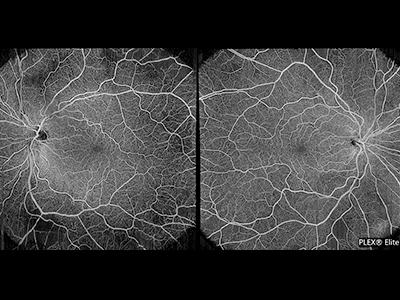
"I say yes to participating in research because it gives us the knowledge and strength to navigate through the tricky parts of life.”
– Blake Covernton, North Shore
Blake Covernton’s 12th year of life was a scary one. Now 64 years old, the North Shore resident recalls losing a lot of weight, feeling dizzy and excessively tired. His mother took him to see their family doctor who gave them a diagnosis of insulin-dependent Type 1 diabetes.
“It definitely scared me. I was told that blindness was a real possibility with diabetes, along with limb loss and other things.”
Always the adventurous type, Blake did not let diabetes slow him down. With the encouragement of a teacher, he started weight lifting. Later, he took up scuba diving.
His love of the water and physical fitness continued into his adult life as a commercial fisherman and diver, a job Blake held for 28 years before moving into project planning for companies like Fortis BC and BC Hydro.
Throughout this, Blake was injecting insulin and taking regular blood tests to manage his diabetes, making sure his blood sugar levels did not reach dangerously high levels.

Blake also makes regular visits to his eye doctor because the risk of vision loss is high for people with diabetes, due mostly to a complication called diabetic retinopathy (DR). DR occurs when elevated blood sugar levels damage the tiny blood vessels in the retina of the eye, restricting blood flow and the amount of oxygen transported to the retina. If left unchecked, this condition can eventually lead to vision impairment or blindness.
“I always knew vision loss was a possibility,” says Blake, “so I see my eye doctor for regular checkups each year.” Then, in October 2018, after being diagnosed with DR, Blake was approached to participate in a clinical trial to study the progression of the disease.
Advanced technology could be a game-changer for diabetic patients
This Vancouver Coastal Health Research Institute (VCHRI) clinical trial is examining changes in the blood vessels in the eyes of diabetic patients 18 years of age and older. The research team is using a special type of optical coherence tomography angiography (OCTA) imaging technology—only one of a handful of machines of its kind in Canada—at Vancouver Coastal Health (VCH). The OCTA machine is used to non-invasively scan and take photos of the tiny blood vessels in the retina and choroid, a vascular layer in the eye.
As a clinical trial participant, Blake will visit Vancouver General Hospital’s Eye Care Centre every three months over the course of one year to have multiple cross-sectional images taken of his retinas.
“It has been very interesting to see what is going on in my eyes throughout this experience. I feel like I am getting as much out of it as the researchers.”
“Seeing the images of my retinas is like looking at a crystal ball into the future of my eyesight. As a diabetic, I do worry about my health and well-being in the future. If my eyesight does start to fail, hopefully we will have new processes and procedures to help me.”

“In its early stages, DR may have no symptoms and can only be diagnosed with a retinal examination,” notes study lead and VCHRI scientist Dr. Eduardo Navajas. “However, as the disease progresses to more advanced stages, vision threatening complications—such as macular edema, vitreous hemorrhage and retinal detachment—can cause blurry vision and/or floaters. If left untreated, it could cause blindness.”

“We are looking for indicators in the eye that can tell us about the progression of DR,” explains study researcher Dr. Sonja Karst, a visiting scientist at the Eye Care Centre. These disease indicators could be anything from a reduction in the number of blood vessels to changes in the structure and density of blood vessels.
“This is really advanced research happening at VCH. We feel very privileged to have this opportunity.”
The images and information researchers gather could help clinicians around the world better understand how DR develops and can progress to dangerous levels, says Karst. It could also lead to improved interventions and treatments to prevent vision loss and impairment.
While Blake’s DR has progressed to moderate levels, his active lifestyle and good blood sugar management have likely helped to keep it relatively in check since his diagnosis 52 years ago.

“My wife and I recently went backcountry skiing outside of Nelson, BC,” says Blake. “That was an amazing experience. What a sight to behold.”
The Macular involvement in diabetic retinopathy evaluated with swept-source OCT study is currently recruiting participants. Qualifying adults ages 18 and over can contact Dr. Eduardo Navajas at retina@eyecarecentre.org for more information and to inquire about participating.
THIS IS ONE PATIENT’S STORY OF PARTICIPATING IN A CLINICAL TRIAL. YOUR EXPERIENCE MAY DIFFER. LEARN MORE ABOUT CLINICAL TRIALS BEFORE PARTICIPATING.


